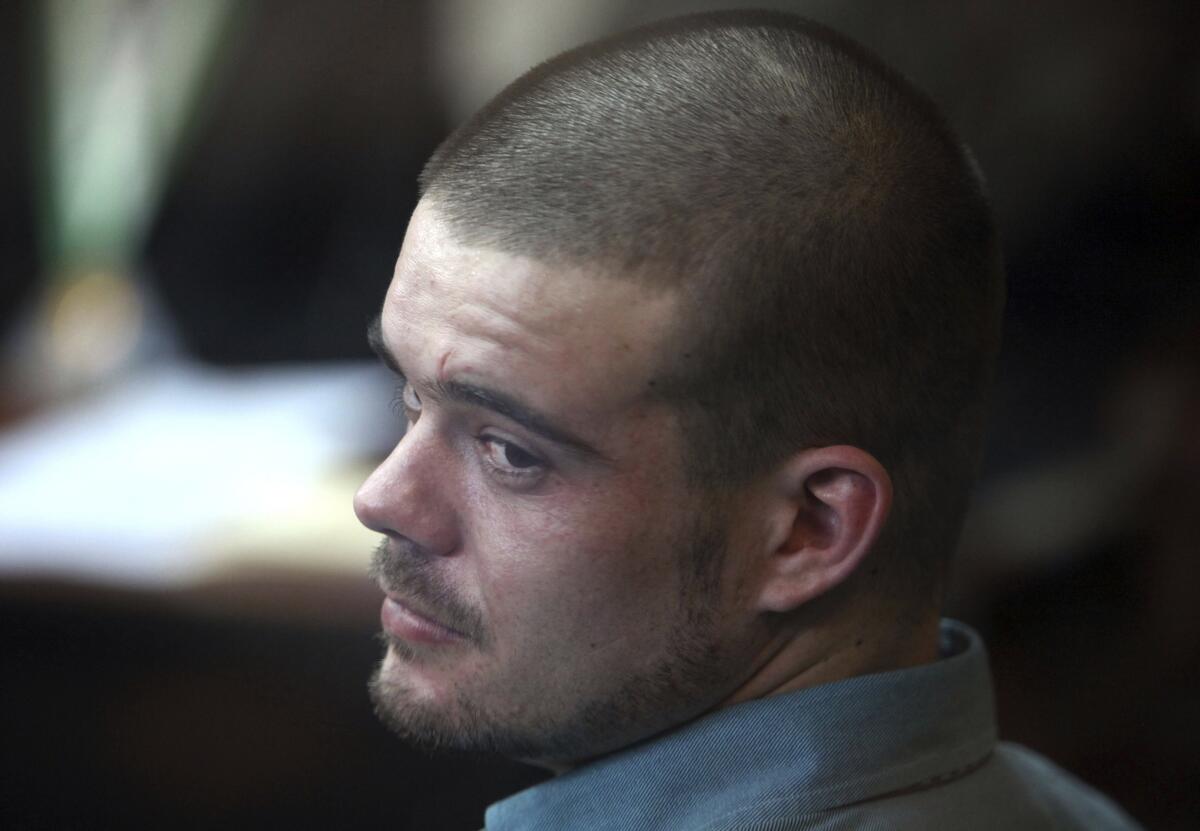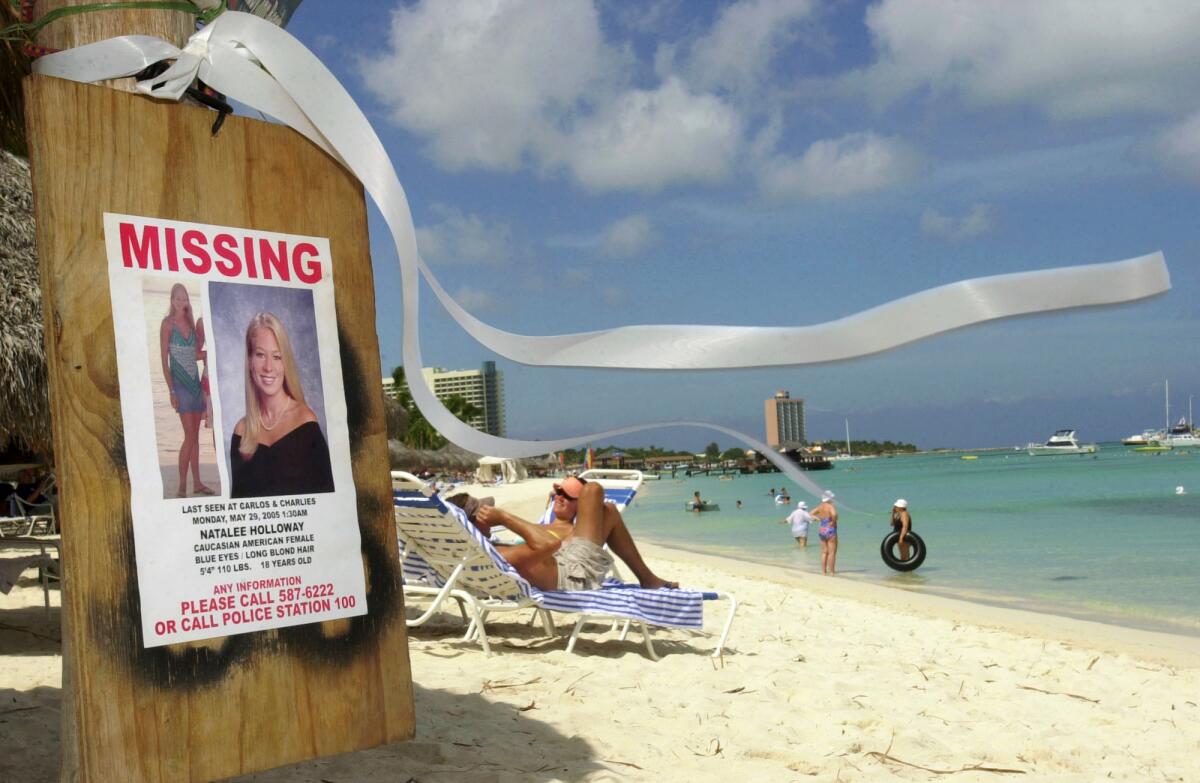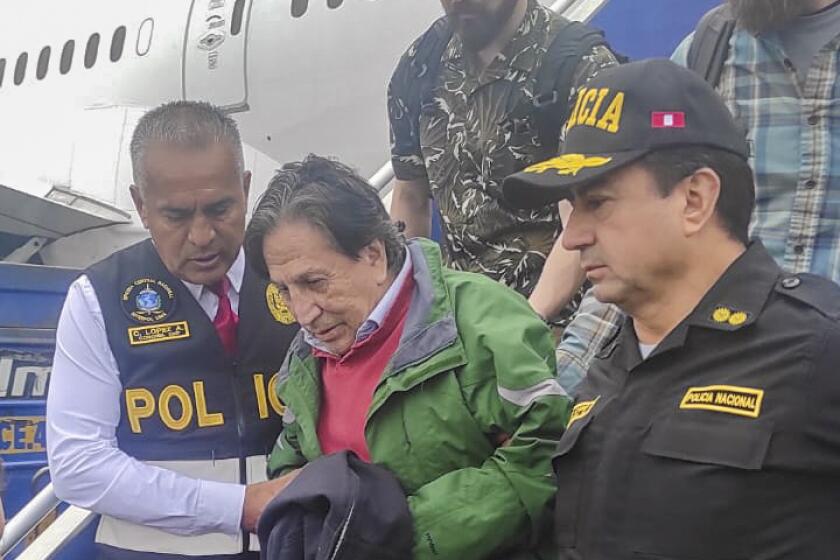In reversal, suspect in Natalee Holloway’s disappearance will fight extradition to U.S.

- Share via
LIMA, Peru — The lawyer for the main suspect in the unsolved 2005 disappearance of American student Natalee Holloway says his client has changed his mind and plans to challenge his extradition to the United States.
Defense attorney Máximo Altez announced Joran van der Sloot’s change of heart Monday just hours after the Peruvian government confirmed that the extradition would take place Thursday. Altez said Van der Sloot, who is Dutch, reversed course after a meeting with Dutch diplomats.
“He does not want to be extradited to the United States of America,” Altez said, adding that he intended to file a writ of habeas corpus. “He was visited today by his embassy [representatives] who made him see the mistake he was making by being extradited without due process.”
The attorney said Van der Sloot was never notified of an open extradition process and, as a result, was not able to challenge it. Less than a week ago, Altez had said his client explained in a letter that he did not plan to fight extradition.

The Dutch Embassy in Lima did not immediately respond to a request for comment. The Peruvian Foreign Ministry said it had “not received any complaint from the Netherlands regarding the case.”
Earlier Monday, the head of Peru’s prison system, Javier Llaque, had told the Associated Press that custody of Van der Sloot would be handed over to Interpol “first thing in the morning” Thursday, after which the Dutchman would be taken to an airport in the capital, Lima, to board a plane to the U.S.
This article was originally on a blog post platform and may be missing photos, graphics or links.
Van der Sloot arrived Saturday at a corrections facility in Lima after a long ground trip under strict security measures from a prison in the Andes, where he was serving a 28-year sentence for the murder of a Peruvian woman.
The government of Peru announced May 10 that it would temporarily transfer custody of Van der Sloot to authorities in the U.S. to face trial on extortion and wire fraud charges.
Holloway, who lived in suburban Birmingham, Ala., was 18 when she went on a trip with classmates to the Caribbean island of Aruba. She was last seen leaving a bar with Van der Sloot, who was a student at an international school on the island.
Van der Sloot was identified as a suspect and detained weeks later, along with two Surinamese brothers. Holloway’s body was never found, and no charges were filed in the case. A judge later declared Holloway dead.
Former President Alejandro Toledo has arrived in Lima after being extradited from the United States to face charges he received millions of dollars in bribes in a scandal that has ensnared four of Peru’s ex-presidents.
The federal charges filed in Alabama against Van der Sloot stem from an accusation that he tried to extort money from the Holloway family in 2010, promising to lead them to her body in exchange for hundreds of thousands of dollars. A grand jury indicted him that year on one count each of wire fraud and extortion.
Also in 2010, Van der Sloot was arrested in Peru in connection with the slaying of 21-year-old Stephany Flores, a business student from a prominent family who was killed five years to the day after Holloway’s disappearance. Van der Sloot pleaded guilty in Flores’ case in 2012.
A 2001 treaty between Peru and the U.S. allows a suspect to be temporarily extradited to face trial in the other country. The time that Van der Sloot ends up spending in the U.S. “will be extended until the conclusion of the criminal proceedings,” including an appeal, should there be one, according to a resolution published in the Peru’s federal register. The resolution also states that U.S. authorities agreed to return the suspect to the custody of Peru afterward.
Holloway’s mother, Beth Holloway, said in a statement released after Peruvian authorities agreed to the extradition last month that the family is “finally getting justice for Natalee.”
“It has been a very long and painful journey, but the persistence of many is going to pay off,” she said.
More to Read
Sign up for Essential California
The most important California stories and recommendations in your inbox every morning.
You may occasionally receive promotional content from the Los Angeles Times.











